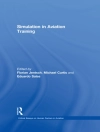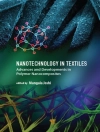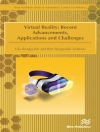- Summarises current research on optimising CA system practices and their ecological, economic and social benefits.
- Elaborates on how CA systems make efficient use of production inputs such as water, nutrients, energy and addresses challenges in such areas as weed, insect pest and disease management.
- Reviews the central issues of improvement in yield, profitability and ecosystem services as well as climate change adaptability and mitigation in CA systems.
Mục lục
1.Practice and benefits of Conservation Agriculture systems: Amir Kassam, University of Reading, UK; and Laila Kassam, Animal Think Tank, UK;
2.Crop and cropping systems management practices and benefits in Conservation Agriculture systems: Muhammad Farooq, Sultan Qaboos University, Oman, University of Agriculture, Pakistan, and The University of Western Australia, Australia; Ahmad Nawaz, Bahauddin Zakariya University, Pakistan; Yashpal Singh Saharawat, International Center for Agricultural Research in the Dry Areas (ICARDA), Lebanon; Timothy Reeves, The University of Melbourne, Australia; and Kadambot Siddique, The University of Western Australia, Australia;
3.Soil management practices and benefits in Conservation Agriculture systems: Michele Pisante, University of Teramo, Italy; Angelica Galieni, Council for Agricultural Research and Economics and Research Centre for Vegetable and Ornamental Crops, Italy; Gottlieb Basch, University of Évora, Portugal; Theodor Friedrich, Food and Agriculture Organization of the United Nations (FAO), Italy; and Fabio Stagnari, University of Teramo, Italy;
4.Weed management practices and benefits in Conservation Agriculture systems: Gottlieb Basch and Fernando Teixeira, University of Évora, Portugal; and Sjoerd W. Duiker, Penn State University, USA;
5.Insect pest and disease management practices and benefits in Conservation Agriculture systems: a case of push–pull practice: Z. R. Khan, International Centre of Insect Physiology and Ecology (icipe), Kenya; A. W. Murage, Kenya Agricultural and Livestock Research Organization (KALRO), Kenya; and J. O. Pittchar and C. A. O. Midega, International Centre of Insect Physiology and Ecology (icipe), Kenya;
6.Nutrient management practices and benefits in Conservation Agriculture systems: Stephane Boulakia, Florent Tivet and Olivier Husson, Centre de coopération Internationale en Recherche Agronomique pour le Développement (CIRAD), France; and Lucien Séguy, Agroéco Riz, France;
7.Carbon management practices and benefits in Conservation Agriculture systems: Carbon sequestration rates: João Carlos de Moraes Sá, State University of Ponta Grossa, Brazil; Florent Tivet, Centre de coopération Internationale en Recherche Agronomique pour le Développement (CIRAD), France; Rattan Lal, The Ohio State University, USA; Ademir de Oliveira Ferreira, Federal Rural University of Pernambuco, Brazil; Clever Briedis, Brazilian Agricultural Research Corporation, Agricultural Instrumentation Center, Brazil; Thiago Massao Inagaki, Technical University of Munich, Germany; and Daniel Potma Gonçalves and Jucimare Romaniw, State University of Ponta Grossa, Brazil;
8.Carbon management practices and benefits in Conservation Agriculture systems: soil organic carbon fraction losses and restoration: João Carlos de Moraes Sá, State University of Ponta Grossa, Brazil; Florent Tivet, CIRAD, France; Rattan Lal, The Ohio State University, USA; Ademir de Oliveira Ferreira, Federal Rural University of Pernambuco, Brazil; Clever Briedis, Brazilian Agricultural Research Corporation, Agricultural Instrumentation Center, Brazil; Thiago Massao Inagaki, Technical University of Munich, Germany; and Daniel Potma Gonçalves and Jucimare Romaniw, State University of Ponta Grossa, Brazil;
9.Biodiversity management practices and benefits in Conservation Agriculture systems: Scott Day, Treelane Farms Ltd, Canada; Ademir Calegari, Agricultural Research Institute of Paraná State (IAPAR), Brazil; Alessandra Santos, Marcus Cremonesi, Lilianne Maia and Wilian Demetrio, Federal University of Paraná, Brazil; and Marie L. C. Bartz, Coimbra University, Portugal;
10.Conservation Agriculture: climate change mitigation and adaptation benefits: Emilio J. Gonzalez Sanchez, Universidad de Córdoba, Spain, European Conservation Agriculture Federation (ECAF), Belgium and Asociación Española Agricultura de Conservación. Suelos Vivos (AEAC.SV), Spain; Oscar Veroz-Gonzalez, Asociación Española Agricultura de Conservación. Suelos Vivos (AEAC.SV), Spain; Manuel Morena-Garcia and Rafaela Ordoñez-Fernandez, IFAPA Centro Alameda del Obispo, Spain; Jesus A. Gil-Ribes and Julio Roman-Vazquez, Universidad de Córdoba, Spain; Antonio Holgado-Cabrera, IFAPA Centro Alameda del Obispo, Spain; Amir Kassam, University of Reading, UK; Gordon Conway, Imperial College London, UK; Saidi Mkomwa, African Conservation Tillage Network, Kenya; Paula Triviño-Tarradas, Antonio Miranda-Fuentes and Francisco Marquez-Garcia, Universidad de Córdoba, Spain; and Rosa M. Carbonell-Bojollo, IFAPA Centro Alameda del Obispo, Spain;
11.Benefits of Conservation Agriculture to farmers and society: Patrick Wall, Independent Consultant – Sustainable Agricultural Systems, Mexico; Christian Thierfelder, International Maize and Wheat Improvement Center (CIMMYT), Zimbabwe; Peter Hobbs, Cornell University, USA; Jon Hellin, International Rice Research Institute (IRRI), The Philippines; and Bram Govaerts, International Maize and Wheat Improvement Center (CIMMYT), Mexico;
12.Social benefits of Conservation Agriculture systems: Rafael Fuentes Llanillo, Tiago Santos Telles and Dimas Soares Junior, Agricultural Research Institute of Paraná State (IAPAR), Brazil; Sara Kaweesa, University of Natural Resources and Life Sciences (BOKU), Austria; and Anne-Marie B. Mayer, Independent Nutrition and Agriculture Consultant, UK;
13.Harnessing ecosystem services with Conservation Agriculture: Amir Kassam, University of Reading, UK; Emilio J. Gonzalez Sanchez, Universidad de Córdoba, Spain, European Conservation Agriculture Federation (ECAF), Belgium and Asociación Española Agricultura de Conservación. Suelos Vivos (AEAC.SV), Spain; Tom Goddard, Alberta Agriculture and Forestry, Canada; Li Hongwen, Conservation Tillage Research Centre, China Agriculture University, China; Ivo Mello, Instituto Rio Grandense do Arroz, Brazil; Saidi Mkomwa, African Conservation Tillage Network, Kenya; Francis Shaxson, Land Husbandry Group, Tropical Agricultural Association, UK; and Theodor Friedrich, Food and Agriculture Organization of the United Nations (FAO), Italy;
14.Rehabilitating degraded and abandoned agricultural lands with Conservation Agriculture systems: Telmo Jorge Carneiro Amado, Federal University of Santa Maria, Brazil; Carlos Alexandre Costa Crusciol, São Paulo State University (UNESP), Brazil; Claudio Hideo Martins da Costa, Universidade Federal de Goiás, Brazil; Otávio dos Anjos Leal, Catarinense Federal Institute, Brazil; and Luan Pierre Pott, Federal University of Santa Maria, Brazil;
Giới thiệu về tác giả
Dr Saidi Mkomwa is Executive Secretary and Chief Executive Officer of the African Conservation Tillage Network with over 30 years‘ experience of developing and promoting Conservation Agriculture techniques in Africa. Amongst other responsibilities he is Chair of the Conservation Agriculture Regional Working Group for Southern Africa. He is based in Kenya.












